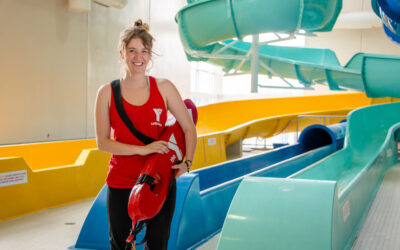Free public lectures offer useful tips to budding authors and editors
Ever wonder about the nuts and bolts that go into the writing, editing and publishing of a literary work?
Editing Modernism: Creative and Critical Remediations, a five-day Textual Editing and Modernism in Canada (TEMiC) Summer Institute at UBC’s Okanagan campus, offers the opportunity for writers and editors to learn all that and more from July 21 to 25.
As an added feature to the scholarly proceedings, a series of five expert lectures are free and open to the public during the institute.
Student participants of Creative and Critical Remediations will be introduced to the foundations of editorial theory and will learn from expert-led discussions while they acquire skills to identify and assess digital tools for editing.
Institute directors Karis Shearer, assistant professor of English in the Faculty of Creative and Critical Studies at UBC Okanagan and Dean Irvine, associate professor of English at Dalhousie University and director of Editing Modernism in Canada, will lead participants through an intensive study of contemporary editorial theory from Canada and abroad.
Not only will the TEMiC Summer Institute bring participants from as far away as Nova Scotia, New Brunswick, Ontario, and Quebec to UBC Okanagan for intensive training in the theory and practice of editing, it also offers the public an opportunity to attend five talks on editing by major scholars in the field, says Shearer.
“Anyone who’s interested in Canadian literature, or curious about what goes on behind the production a print or digital book – the hard decisions that are made long before it arrives on the bookshelf or on your e-reader – is likely to find these talks intriguing.”
The public talk series explores writings of renowned authors; discusses the how-to of editing; mediating Indigenous literature; offers insight into the work of those who “make” literature at the edge of mainstream institutions; and explains the world of audio editing for literary works.
The public talks take place each day of the institute from 1 to 2:30 p.m. in University Theatre, ADM026. Pay parking is available and registration is not necessary. Topics include:
- Monday, July 21
UBC Okanagan Assistant Professor Jordan Stouck and Simon Fraser University Professor Emeritus David Stouck, Finding Sinclair Ross: Editors at Work. Canadian modernist author Sinclair Ross’ edited letters and writings are discussed for their relevance and meaning. - Tuesday, July 22
Susan Brown, Remediating the Editor. Renowned for her work in digital humanities, with academic appointments at the University of Alberta and University of Guelph, Brown offers insights into the roles of writers and editors. - Wednesday, July 23
Paul Seesequasis, Throwing Sticks at the Queen’s Hat: Mediating Indigenous Words from Big Bear to Boyden. Seesequasis, editor-in-chief of Theytus Books, Canada’s first Aboriginal press, discusses Indigenous literature from the perspective of both historic figures like Big Bear to today’s authors, like Joseph Boyden. - Thursday, July 24
Kaplan Harris, Adjuncts, Interns and DIY Poetry Tradition. An associate professor with Bonaventure University and a Fulbright Visiting Research Chair at Brock University, Harris offers insight into the work of those who “make” literature at the edge of mainstream institutions. - Friday, July 25
Miriam Nichols, The Astonishment Tapes: Translating the Archives. Nichols, an associate professor at the University of the Fraser Valley, talks about editing the audio tapes of Vancouver author Robin Blaser into book form.
The full schedule of public events can be found at: http://editingmodernism.ca/training/training-institutes/temic/schedule/





0 Comments